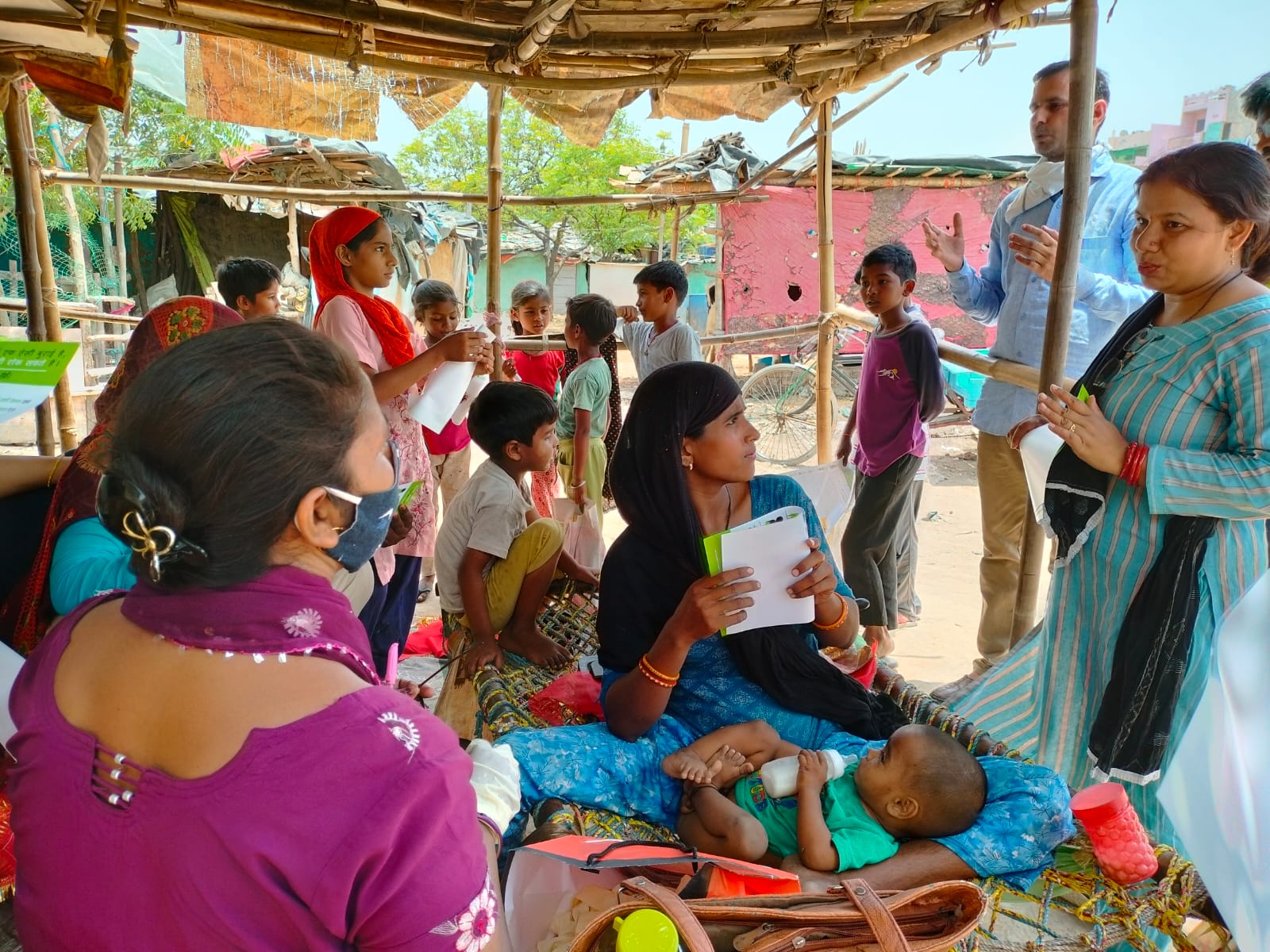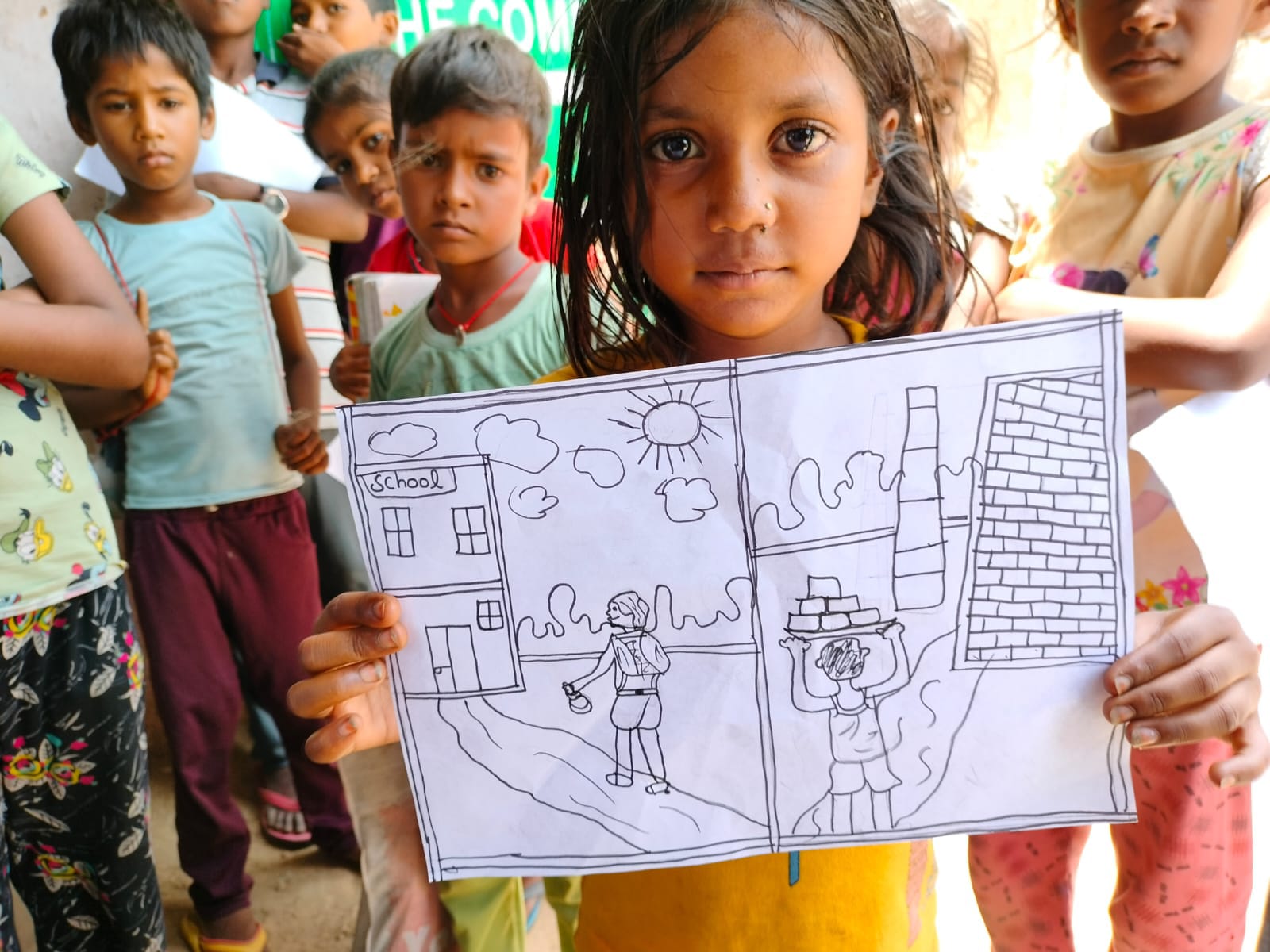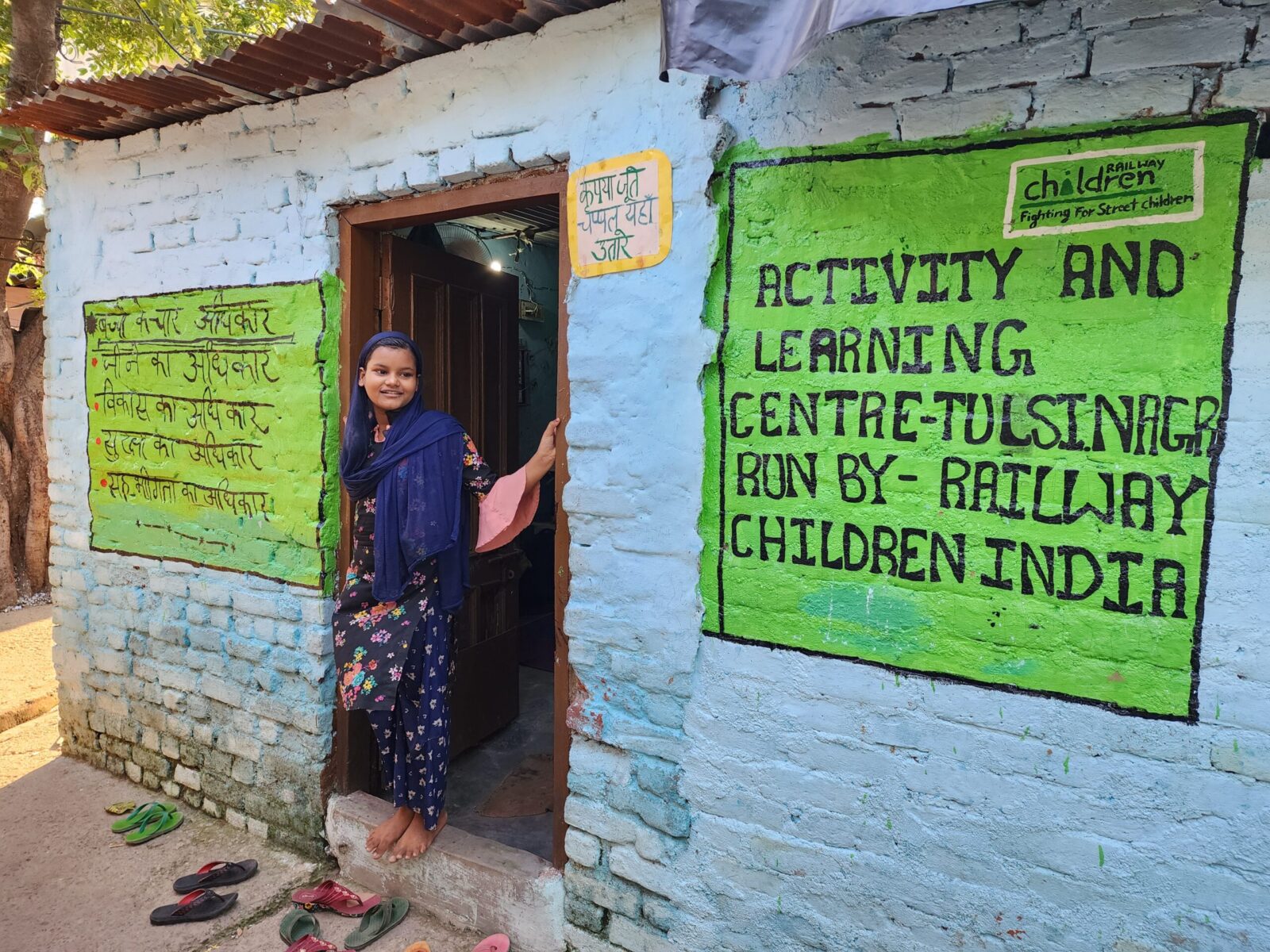Taking readers into Ghaziabad’s Child Activity is Mr. Shubham Chakraborty, Project Coordinator at RCI.
A safe place—this concept differs for different people. For some it’s their home, for others it’s their workplace. What does it mean for children? In an attempt to answer this question for children inhabiting communities in and around transport hubs, Railway Children India initiated Child Activity Centres (CAC’s). Present in multiple regions across India, these centres focus on sensitizing members of the community, engaging them to participate in protecting their children and bridging the gap of education and skill development among children. In this insightful conversation, Project Coordinator Mr. Shubham Chakraborty, details the intent of establishing CACs, their functioning and the impact they’ve had so far in the remotest of regions. Read on.
Mr. Chakraborty oversees operations of RCI’s only functioning CAC in Ghaziabad, which is located in the Bicchal Dwar area. Initiated in 2018, this CAC has served close to 3000 children till date. He describes the CAC as primarily an education centre that focuses on providing necessary educational aid to children inhabiting the nearby slum community.
 Three groups of children flock to the centre at various periods. The first group comprises children in the age group of 5 to 10 years, while the other two groups comprise adolescent boys and girls, respectively. At the centre, depending on the age group and interests, these children participate in various activities.
Three groups of children flock to the centre at various periods. The first group comprises children in the age group of 5 to 10 years, while the other two groups comprise adolescent boys and girls, respectively. At the centre, depending on the age group and interests, these children participate in various activities.
Whether it is reading a newspaper or indulging in fun activities like painting and dancing, there’s a whole lot to learn for children at the centre. Each activity is planned with the intention of adding to their knowledge and skill set, and ensuring they are learning.
“We also have a parents group visiting the centre”, says Mr. Chakraborty. The purpose of engaging parents in the CAC is to spread awareness about the numerous social welfare schemes that they can avail and to sensitize them on the importance of education in the lives of children. Bear in mind that these are unorganized communities where there’s lack of essential supplies such as water and electricity. In such communities, repeatedly driving home the importance of education is a necessity,” elaborates Mr. Chakraborty.
CACs make it possible for this basic awareness to be made available to both parents and children alike, at all times.
On special occasions such as the International Day against Child Labour, for instance, or after noteworthy national events, RCI’s outreach team conducts awareness campaigns in the community to start conversations and discourse around the subject. Additionally, the team holds monthly meetings for adults where they bring up issues that they may be facing and solutions to those are discussed.

“The discussion about free education for children garnered immensely positive responses from the community”, shares Mr. Chakraborty. “The community members were unaware that under special provisions, children belonging to underprivileged communities can avail free education in public schools.”
The CAC has been a welcoming home for every member of the community, children and parents alike. Children who had never seen the gates of a school, have gone ahead to not only complete formal education from public schools but are now also enrolled in vocational courses, whereby they now see a real potential in their future. The path towards this future and the promise they see ahead was not easy, but with access to the CAC and the guidance provided by RCI’s volunteers, it became a safe one, for sure.





